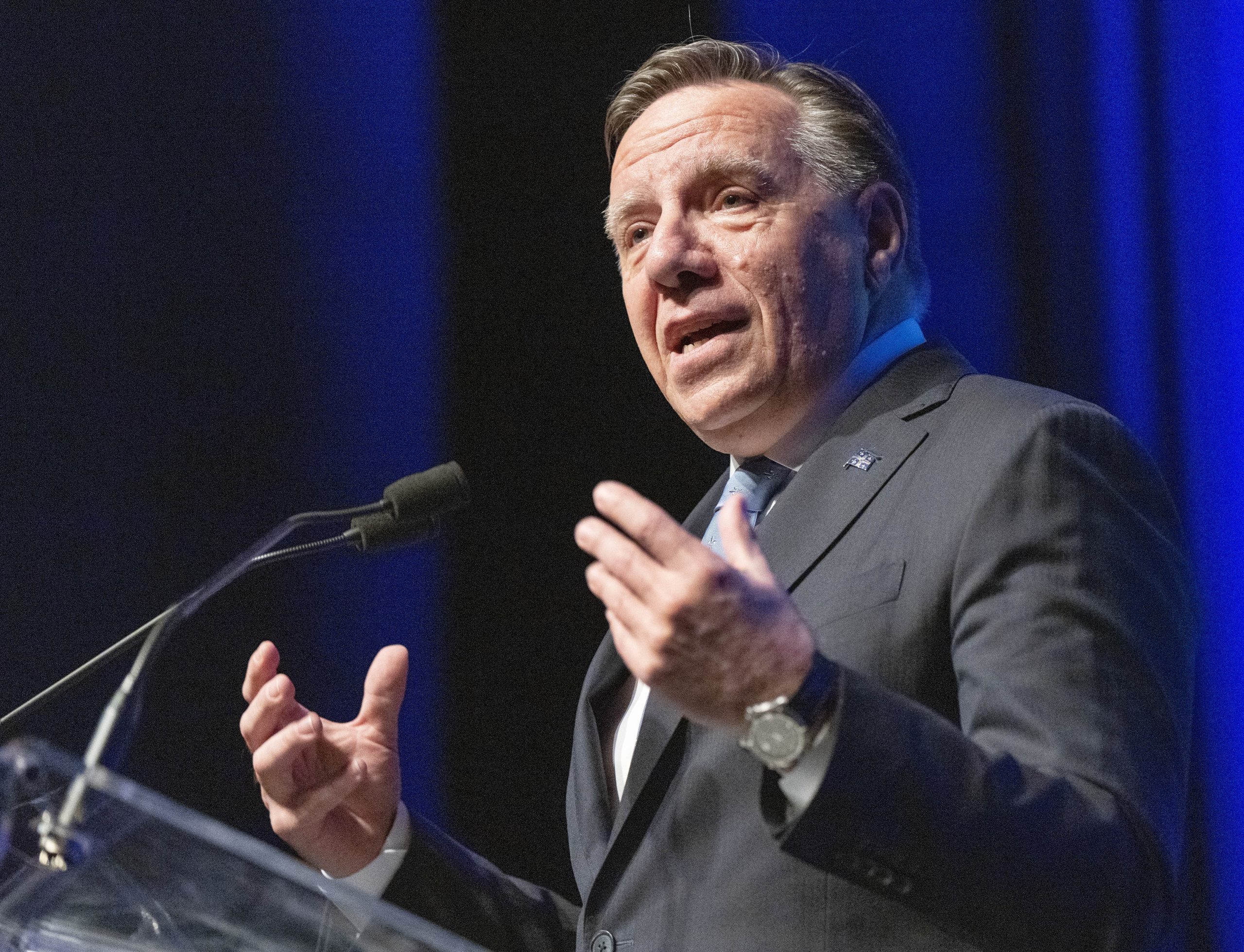Canada News
Coalition Avenir Québec under fire for ‘taking advantage’ of woman in election ad

Quebec Premier François Legault makes a funding announcement for a new music hall, Thursday, June 23, 2022, in Montreal. THE CANADIAN PRESS/Ryan Remiorz
MONTREAL — Quebec’s governing party defended itself Monday against accusations it underpaid and took advantage of a woman who appeared in a widely promoted election advertisement.
The Coalition Avenir Québec faced heavy criticism on social media for a series of short video clips depicting an unnamed woman in the Mauricie region who lauded the party, its response to the COVID-19 pandemic and its leader, Premier François Legault.
The woman’s daughter, Chantal Landry, wrote an open letter on Saturday in Le Devoir stating that the family thought the interview would be part of a video series of regular voters and not the central component of a political ad, adding that her mother was only paid $250.
Landry said that amount was “ridiculous” because her mother’s participation wasn’t for a simple interview but for a campaign advertisement. She wrote that the CAQ had taken advantage of a “poor, uneducated woman by making her believe that $250 is the right price to use this ‘planned’ video for advertising purposes.”
The ad played widely on television and online.
“I understand that it is unethical to pay someone for their political opinions, but it is equally unethical to take advantage of an elderly woman with a modest income,” Landry wrote.
The CAQ’s political opponents called on Legault’s party to pull the ad, pay the woman more money for using her image and apologize to the family.
On Monday, the party released a statement insisting it meant no harm. “It was always clear that the interview would be used for advertising,” CAQ executive director Brigitte Legault said, adding that the party was “surprised and saddened” by Landry’s letter.
The ad had been scheduled to stop running last week and is no longer being used, she said. “It was never our intention to take advantage of anyone.”
The CAQ had first interviewed the woman for a 2018 advertisement and offered a $100 compensation to each person who participated. The party said it sought her out again because it liked the woman’s “unusual verve, her expressiveness and her kindness.” It said the woman refused compensation, but the CAQ insisted on paying her. Legault said the woman was paid a total of $500.
Christian Desîlets, a professor of advertising in the department of information and communication at Université Laval, said it is ethically “reprehensible” for a party to present an interview as a vox pop — a random sampling of people on the street — and instead use the footage for a campaign ad.
“My point of view was from the moment you take a citizen and make them the spokesperson for a campaign … ethically it’s reprehensible to present it as the fruit of a vox pop — it’s false,” Desîlets said.
“It is presented as a vox pop but in reality, it was someone who had been part of a CAQ ad in 2018; they sought her out precisely because they knew what she was going to say.”
Desîlets said citizen involvement in political advertisements is a bit of a grey zone with regards to determining compensation. But he said that based on his private sector experience, a person who is featured in an ad broadcast on multiple platforms across the province should be paid between $8,000 and $10,000.
Quebec’s provincial election is scheduled for Oct. 3.
This report by The Canadian Press was first published July 18, 2022.
Sidhartha Banerjee, The Canadian Press





















